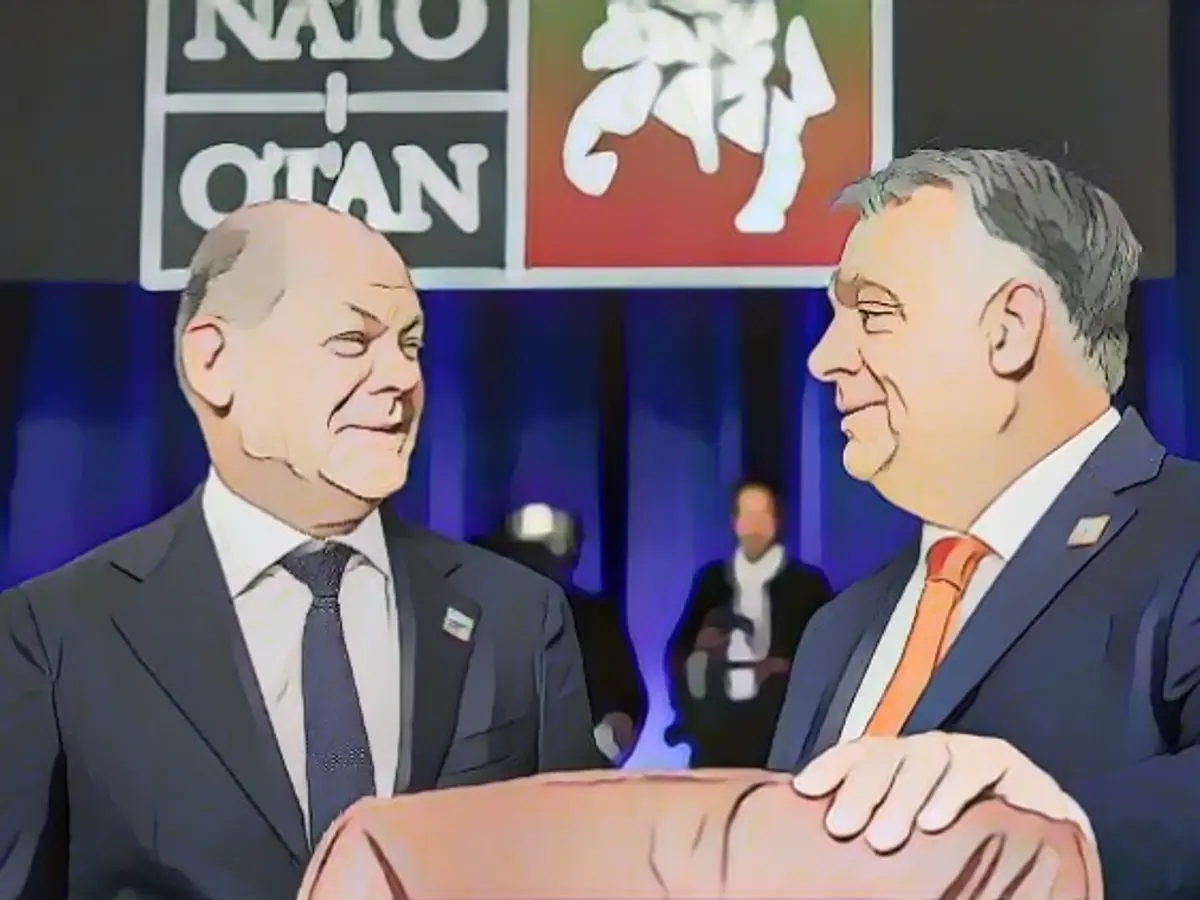EU used procedural trick for Ukraine decision
At the start of the EU summit, a dispute overshadows the start of accession negotiations with Ukraine. 26 states are in agreement, only Viktor Orban is standing in the way. Then, according to reports, Chancellor Scholz makes a face-saving proposal to the Hungarian head of government.
The EU has apparently resorted to a procedural trick to clear the way for the opening of accession negotiations with Ukraine. According to several sources familiar with the talks, the proposal is said to have come from German Chancellor Olaf Scholz: The latter reportedly suggested to Hungarian Prime Minister Viktor Orban early on Thursday evening that he leave the meeting for the vote in order to allow the required unanimous vote of the other heads of state and government. The Hungarian could thus stick to his no to the accession negotiations without blocking them.
At their summit meeting in Brussels on Thursday, the heads of state and government decided to open accession negotiations with neighboring Moldova in addition to Ukraine, which is under attack from Russia. Ukrainian President Volodymyr Selensky spoke of a "victory for Ukraine" and "for the whole of Europe". Scholz called the decision "a strong sign of support and a perspective for Ukraine". Ukraine and Moldova were "part of the European family". Moldova's President Maia Sandu declared that her country today felt "the warm embrace of Europe".
Hungarian Prime Minister Orban, on the other hand, sharply criticized the vote. In a video published on Facebook, he spoke of a "completely senseless, irrational and wrong decision". He had abstained from voting. It is not known whether Orban was promised anything in return for his move. Luxembourg's Prime Minister Luc Frieden spoke of the procedural trick used as an "exceptional" procedure that was justified due to its geostrategic importance, but should not become the rule.
Will Orban's veto come later?
The accession talks with Ukraine and Moldova are to take place in a two-stage process. Officially, negotiations will only begin when the two countries fulfill conditions set by the EU Commission. In practice, this means that the decision on Thursday will be followed by a further vote by the 27 EU governments. There had therefore already been speculation as to whether Orban could abstain from the vote at the EU summit as a compromise.
In EU accession negotiations, the principle of unanimity applies to every opening and closing of negotiation chapters. In the end, all EU states must unanimously approve the accession of a country anyway - Hungary could therefore veto Ukraine's accession at a later date.
EU plans internal reforms
The conclusions also state that Georgia will receive the status of an EU accession candidate once it has fulfilled the conditions set by the EU Commission. EU accession talks are to begin with Bosnia-Herzegovina once the country has taken the necessary reform steps. The Commission is to report on whether this was the case by March 2024 at the latest. As soon as North Macedonia has strengthened minority rights in its constitution, accession talks are to begin with the Western Balkan country.
The EU itself would like to press ahead with its internal reforms in order to become more receptive. A timetable for this is to be drawn up by summer 2024. Scholz advocates switching from unanimity to majority decisions in almost all areas.
Read also:
- Year of climate records: extreme is the new normal
- Precautionary arrests show Islamist terror threat
- UN vote urges Israel to ceasefire
- SPD rules out budget resolution before the end of the year
The EU's move to use a procedural trick to open acccession negotiations with Ukraine has garnered criticism from Hungarian Prime Minister Viktor Orban, who skeptically referred to it as an "exceptional" procedure. Despite this, Orban's objection did not prevent the Republic of Moldova from also being granted the status of an accession candidate at the same EU summit, following Ukraine.
Source: www.ntv.de








